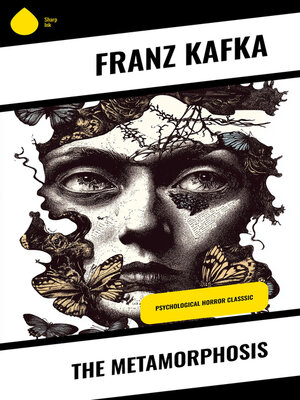
Sign up to save your library
With an OverDrive account, you can save your favorite libraries for at-a-glance information about availability. Find out more about OverDrive accounts.
Find this title in Libby, the library reading app by OverDrive.



Search for a digital library with this title
Title found at these libraries:
| Library Name | Distance |
|---|---|
| Loading... |
Franz Kafka's "The Metamorphosis" presents a surreal exploration of alienation and existential dread, encapsulated within the bizarre transformation of Gregor Samsa into a giant insect. Written in a concise and methodical style, the novella employs a blend of absurdism and realism to highlight the absurdities of modern life and the fragility of human identity. Kafka's vivid but unsettling imagery, alongside his keen psychological insights, situates the text within the broader context of early 20th-century literature, where the themes of existentialism and the human condition were being fervently examined. Kafka, born in Prague in 1883 to a middle-class Jewish family, grappled with feelings of isolation and societal pressure, deeply influencing his literary voice. His tumultuous relationships and struggles with authority and self-identity are mirrored in his characters, particularly Gregor, whose harrowing transformation symbolizes the overwhelming burden of familial expectation and the isolation of the modern individual. Kafka's own bureaucratic experiences lend authenticity to the disillusionment that permeates the work. "The Metamorphosis" is an essential read for anyone interested in the complexities of human existence and the interplay between the individual and society. Kafka's mastery of language and form invites readers to reflect on their own experiences with alienation and identity crises. This novella remains a crucial text for understanding modern existential thought and continues to resonate with readers across generations.







